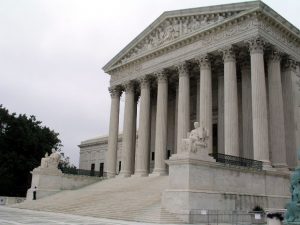Is saying, “Ok, boomer” a form of age discrimination? The U.S. Supreme Court is weighing the possibility. While we await a decision, companies may want to be wary of workers tossing the phrase around. 
The pithy catchphrase went viral last year as a means of taking a dig at older generations – specifically the perception that aging individuals tend to be more judgmental, narrow-minded and rigidly conservative. Recently, while considering an age discrimination lawsuit, Chief Justice John Roberts, himself a baby boomer (those born between 1946 and 1964), asked hypothetically whether use of the phrase said during the hiring process would constitute age discrimination.
The case in question involves an older government employee who alleges she was discriminated against because of her age. When Roberts asked the question, the somber mood within the courtroom lightened as many chuckled. However, the plaintiff’s employment attorney did seize on it to make a serious point, noting that the use of ethnic slurs in the hiring process could easily be construed as evidence of age discrimination – why not a quip like, “Ok, boomer”? Continue Reading ›
 Orange County Employment Lawyers Blog
Orange County Employment Lawyers Blog










